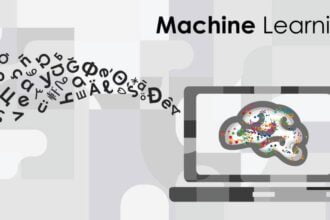I’ve recently become hooked on the TV series Downton Abbey. I’m not usually one for costume dramas, but the mix of fine acting, the intriguing social relationships, and the larger WW1-era story make for compelling viewing. (Also: Maggie Smith is a treasure.)
I’ve recently become hooked on the TV series Downton Abbey. I’m not usually one for costume dramas, but the mix of fine acting, the intriguing social relationships, and the larger WW1-era story make for compelling viewing. (Also: Maggie Smith is a treasure.)
Despite the widespread criticial acclaim, Downton has met with criticism for some period-innapropriate uses of language. For example, at one point Lady Mary laments “losting the high ground”, a phrase that didn’t come into use until the 1960s. But is this just a random slip, or are such anachronistic phrases par for the course on Downton? And how does it compare to other period productions in its use of language?
To answer these questions, Ben Schmidt (a graduate student in history at Princeton University and Visiting Graduate Fellow at the Cultural Observatory at Harvard) created an “Anachronism Machine“. Using the R statistical programming language and Google n-grams, it analyzes all of the two-word phrases in a Downton Abbey script, and compares their frequency of use with that in books written around the WW1 era (when Downton is set). For example, Schmidt finds that Downton characters, if they were to follow societal norms of the 1910’s (as reflected in books from that period), would rarely use the phrase “guest bedroom”, but in fact it’s regularly uttered during the series. Schmidt charts the frequency these phrases appear in the show versus the frequency they appear in contemporaneous books below:
(Click to enlarge.) Words above the zero horizontal line, and especially those near the top of the chart, appear far too often for the period (“black market” didn’t gain currency until WW2.) Phrases below the line don’t appear in the show often enough (e.g. “little chap”, whose usage actually peaked around Downton’s time).
But of course, Downton isn’t a documentary: it’s entertainment, written by modern screenwrights and for the ear of a modern audience. And Downton’s writers don’t have period-accurate source material to refer to, as the makers of the BBC’s “Pride and Prejudice” did. (And as Schmidt points out, there’s a lot it does get right: WW1-era phrases like “old chap”, “who shall” and “newspaper man” are accurately represented in Downton.) So how does Downton’s use of language compare to other period dramas? By applying the Anachronism Machine to other movies and series set in the Georgian era, Schmidt makes the comparison:
Heartbreak House was published in 1919 — and it’s safe to assume George Bernard Shaw had a good grasp of WW1-era language — so it acts as a kind of a control here. Shows higher on the vertical scale have more “extremely anachronistic language”; those further to the right have more “somewhat modern” language than expected. (The numbers are individual episodes within the series.) Remains of the Day does quite well: very few howlers, and just a few more modern phrases than you’d expect.
The real kicker here though is “Gosford Park” — a thoroughly excellent Robert Altman movie, also on the “upstairs, downstairs” theme. Gosford Park was written by Julian Fellowes … who is also the creator of Downton Abbey. So the Anachronism Machine not only detects misuse of period language, it can also pinpoint a specific period writer’s style. Pretty amazing, huh?*
(*Though no-one from Downton would say such a thing.)
Sapping Attention: Making Downton more traditional








